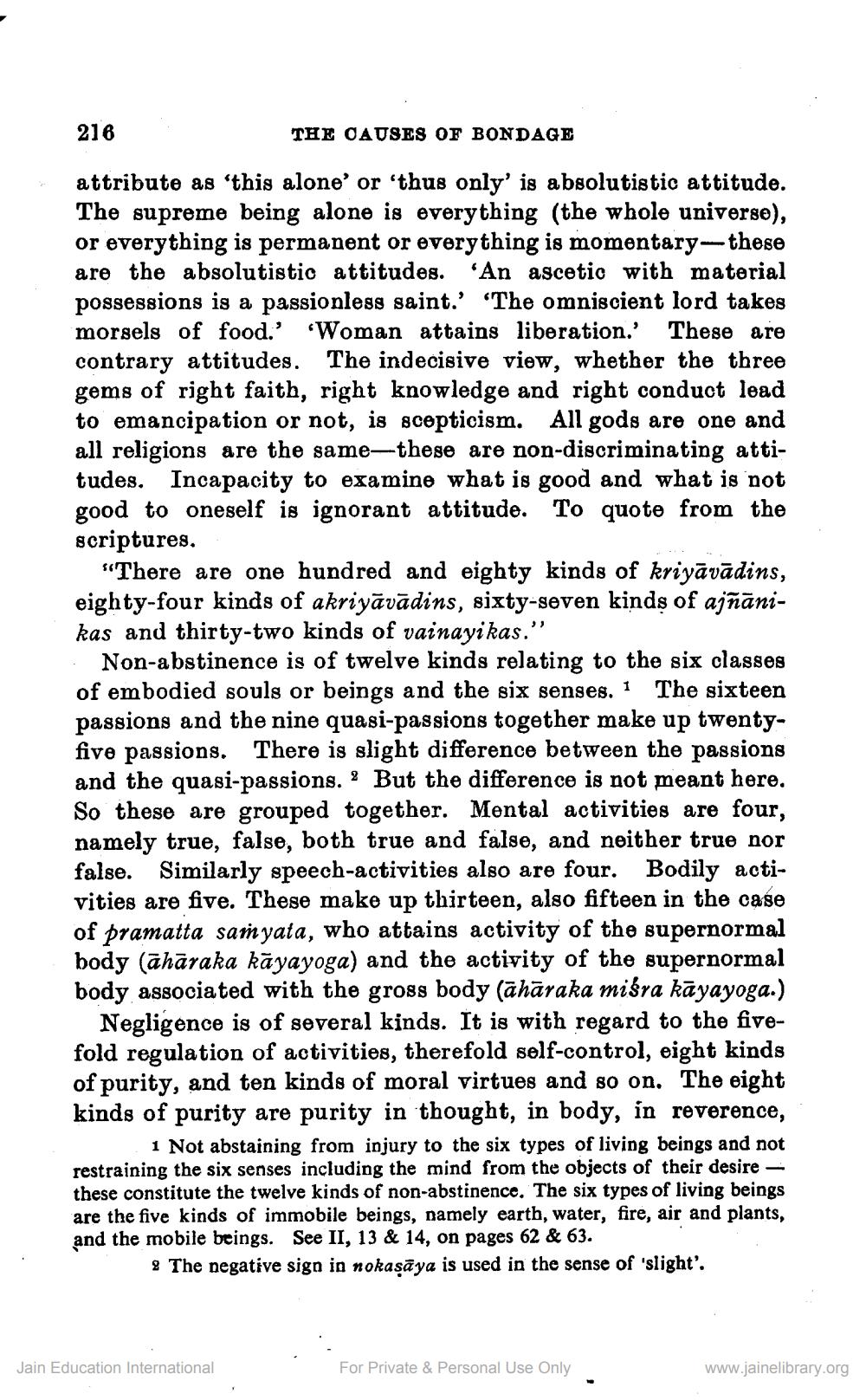________________
216
THE CAUSES OF BONDAGE
attribute as 'this alone' or 'thus only' is absolutistic attitude. The supreme being alone is everything (the whole universe), or everything is permanent or everything is momentary-these are the absolutistic attitudes. 'An ascetic with material possessions is a passionless saint.' 'The omniscient lord takes morsels of food.' 'Woman attains liberation.' These are contrary attitudes. The indecisive view, whether the three gems of right faith, right knowledge and right conduct lead to emancipation or not, is scepticism. All gods are one and all religions are the same-these are non-discriminating attitudes. Incapacity to examine what is good and what is not good to oneself is ignorant attitude. To quote from the scriptures.
"There are one hundred and eighty kinds of kriyāvādins, eighty-four kinds of akriyāvādins, sixty-seven kinds of ajñānikas and thirty-two kinds of vainayikas."
1
2
Non-abstinence is of twelve kinds relating to the six classes of embodied souls or beings and the six senses. The sixteen passions and the nine quasi-passions together make up twentyfive passions. There is slight difference between the passions and the quasi-passions. But the difference is not meant here. So these are grouped together. Mental activities are four, namely true, false, both true and false, and neither true nor false. Similarly speech-activities also are four. Bodily activities are five. These make up thirteen, also fifteen in the case of pramatta samyata, who attains activity of the supernormal body (aharaka kayayoga) and the activity of the supernormal body associated with the gross body (āhāraka miśra kāyayoga.)
Negligence is of several kinds. It is with regard to the fivefold regulation of activities, therefold self-control, eight kinds of purity, and ten kinds of moral virtues and so on. The eight kinds of purity are purity in thought, in body, in reverence, 1 Not abstaining from injury to the six types of living beings and not restraining the six senses including the mind from the objects of their desire → these constitute the twelve kinds of non-abstinence. The six types of living beings are the five kinds of immobile beings, namely earth, water, fire, air and plants, and the mobile beings. See II, 13 & 14, on pages 62 & 63.
2 The negative sign in nokaṣāya is used in the sense of 'slight'.
Jain Education International
For Private & Personal Use Only
www.jainelibrary.org




